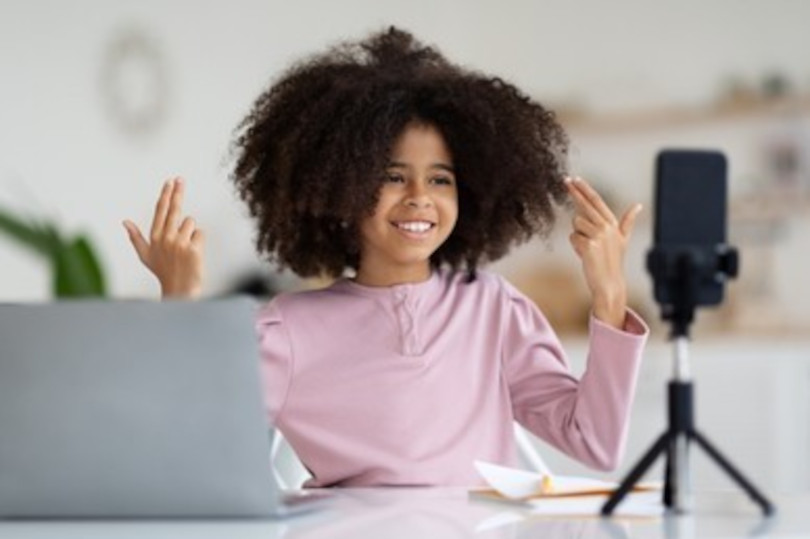Everyone is a sucker for cute baby videos. We love watching babies walk for the first time or make a sassy remark to their parents. There’s something magical and heartwarming watching those same children grow from babies to adults. But does every piece of their growth to adulthood need to be documented on social media? Should moments such as bath time, graduation, and birthday parties be created for content?
How the Parasocial Relationship Starts
The rise of Tik Tok and child influencers has caused parents to jump in and create social media accounts for their children as soon as they are born. The parents document almost every detail about the child’s life such as their birthdays or first day of school. In my findings, some of these Instagram accounts include the child’s weight, height, and birthday in the bio. These details are shared in hopes of booking modeling gigs.
A strange pattern that I found in these Instagram accounts is that the parent would roleplay as their child. For example, instead of captioning the child’s Instagram post, “Maya’s first day of school!” The parents would write, ” My first day of school!” The parent creates the illusion that the child is interacting with the audience in order to create a bond with them. In reality, the parent is dependent on the child’s audience to gain a parasocial relationship with the child to earn money.
When Parents Fail To Protect Their Kids
As I looked through more Instagram accounts of child influencers, I noticed that the followers of these children were mostly adults. The comments seem innocent enough, full of comments such as “Beautiful” and “Cute.” But sometimes, these comments take a dark turn, and parents fail to monitor, filter, or block accounts that cross the line. Child TikTok star, Wren of @wrenandjacquelyn was a victim of sexual harassment from her fanbase. Videos of Wren eating and taking a bath had gained popularity for the wrong reasons.
The videos have been viewed, shared, and downloaded more than they were “liked.” This led concerned parents and others to believe that those videos were being passed around by potential predators. In the account’s comment section, anonymous accounts made sexual comments about the toddler. The harassment got so bad that the mother stepped in and stated that she would filter and monitor comments from now on. The videos that have caused the sexual harassment are still available on her account.
The Disturbing Cameo
What inspired me to write about child influencers was an incident that happened last month, May, about an 11-year-old girl creating Cameo messages. Cameo is an app where people can purchase personalized videos from their favorite celebrities and influencers. The cameo the girl created was for firefighter David for his birthday. David thanked the girl, “You’re so beautiful and perfect ?❤️?.” Another commenter spoke, “[Name of the Child] you rock and you have the biggest brightest personality that just lights up any room when you walk in. I’m sure you’ve heard that 1000x. Your just awesome and thank you for making me smile.”
The comments, needless to say, made me sick to my stomach. Children, who are mostly girls, are being robbed of their childhood to be the star of men’s fantasies. The little girls don’t have the freedom to be messy, sassy, weird, and goofy because they have to uphold an image to make money for their parents.
Protecting Children Through Restriction
Unfortunately, child influencers do not receive as much protection as child actors or singers. There are currently no laws to protect child influencers since influencing is not seen as a real job because of its vague job description. There are parents such as mom.uncharted on Tiktok who fight against child influencing and exploitation online.
The age restriction for Instagram and TikTok is 13 years old. Accounts that are dedicated to the image of a child younger than that should be banned. Additionally, no one should be able to profit financially from their platform. Children should not be on social media for adults to attach themselves to.


